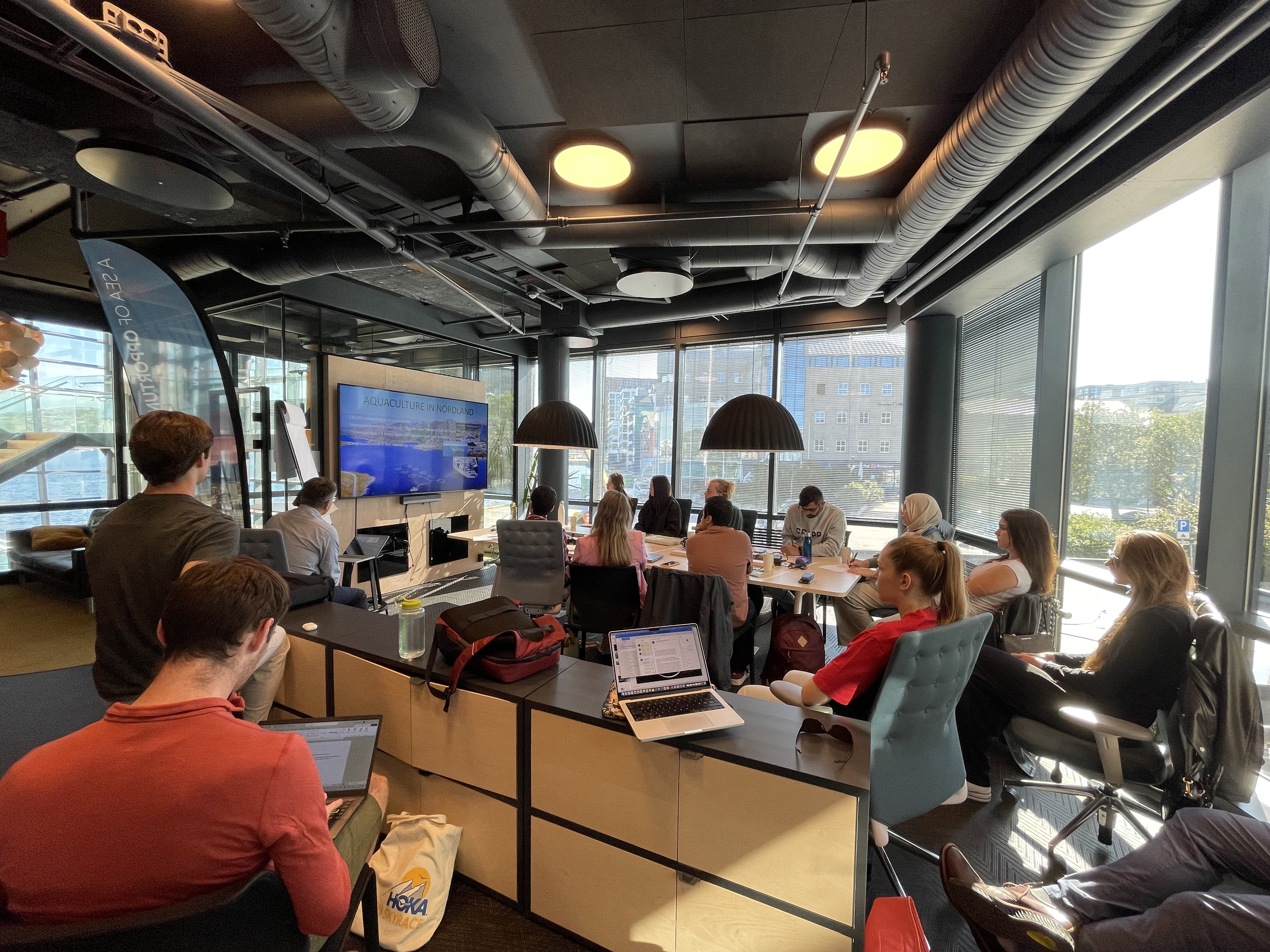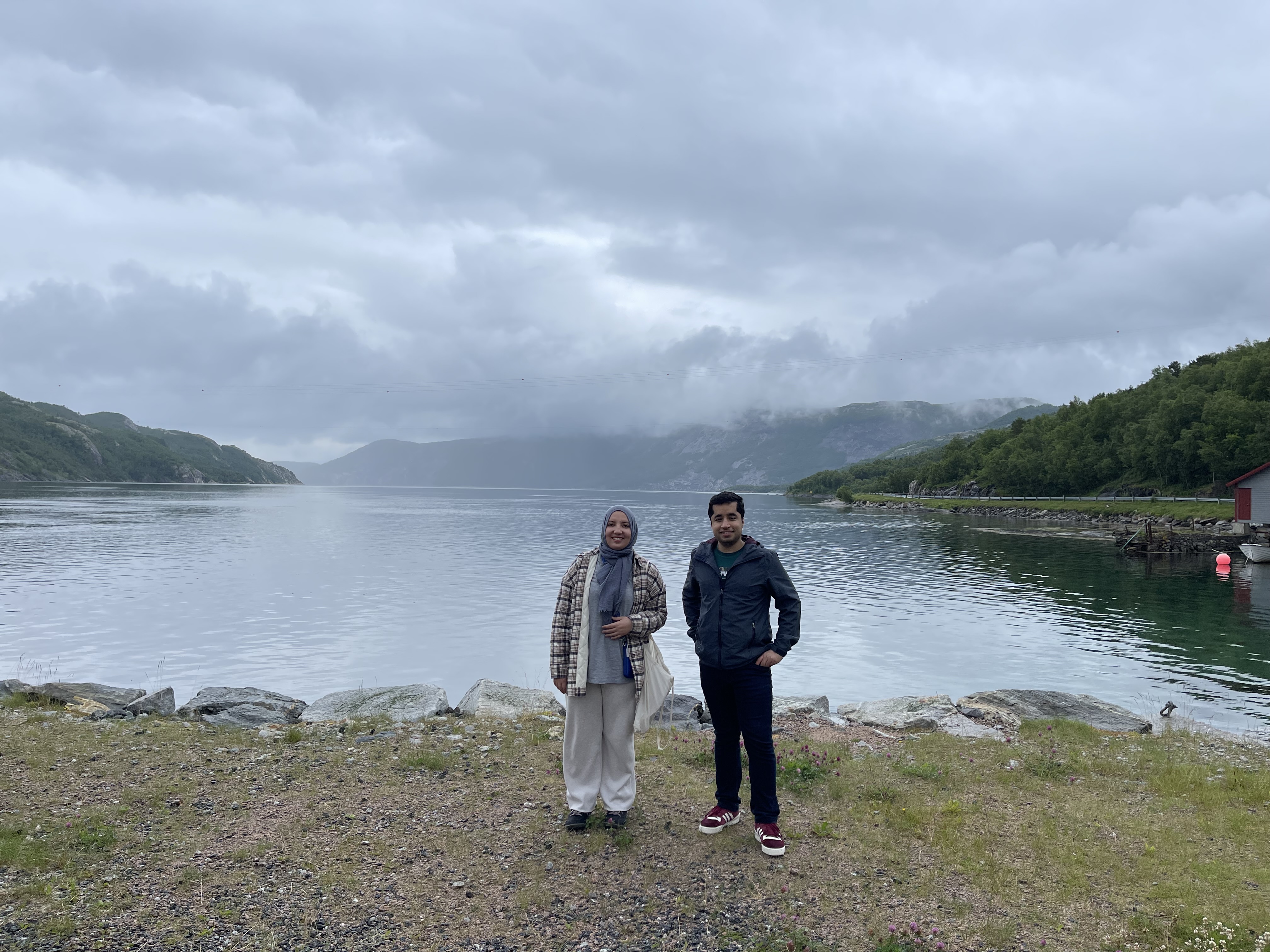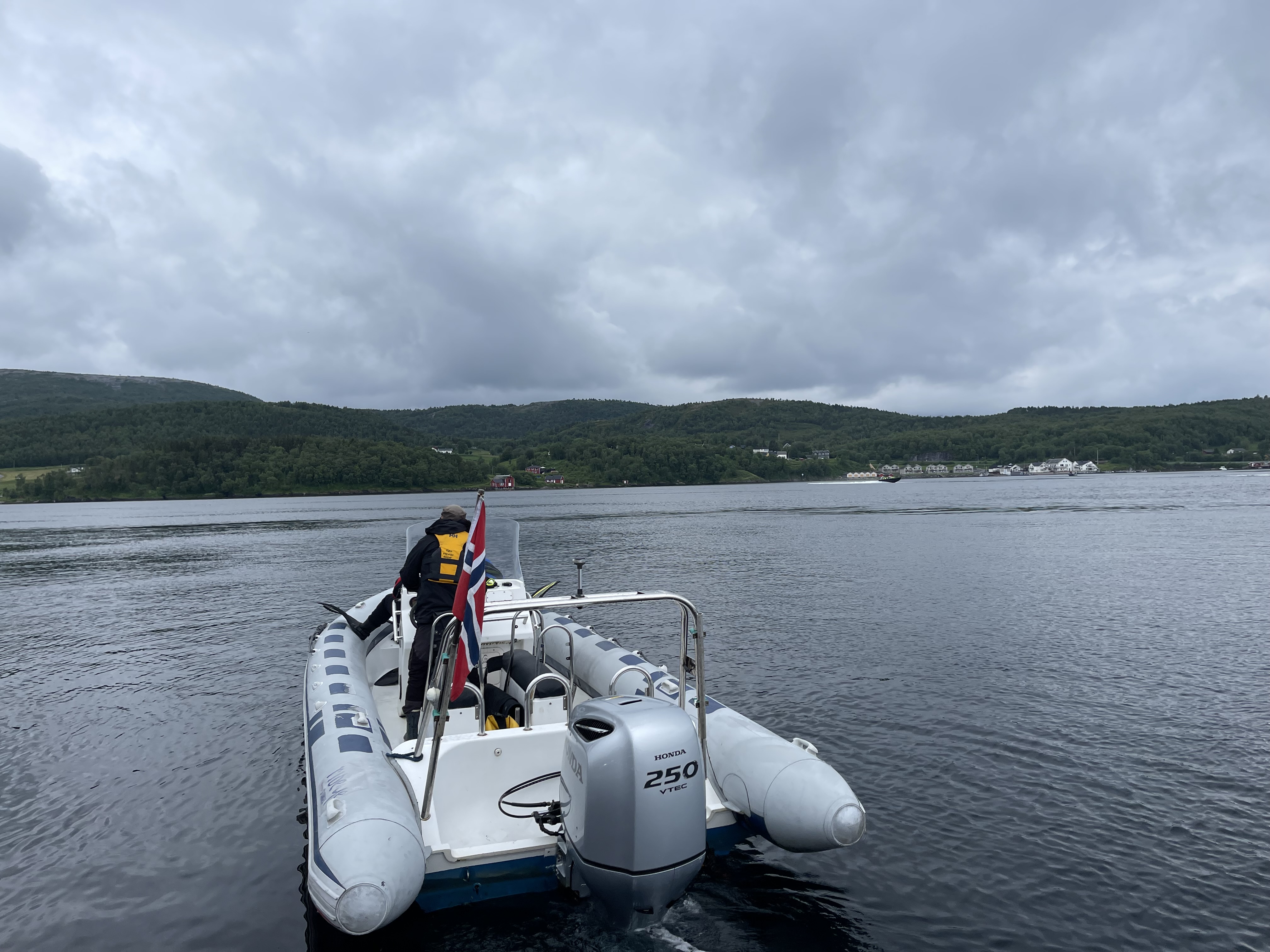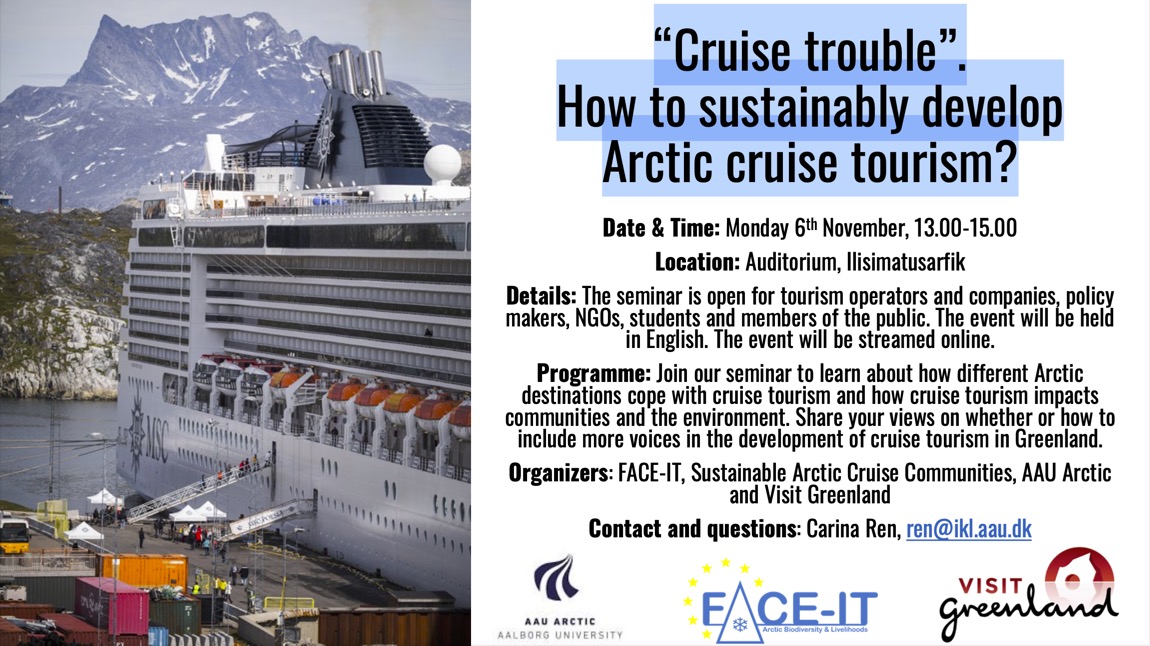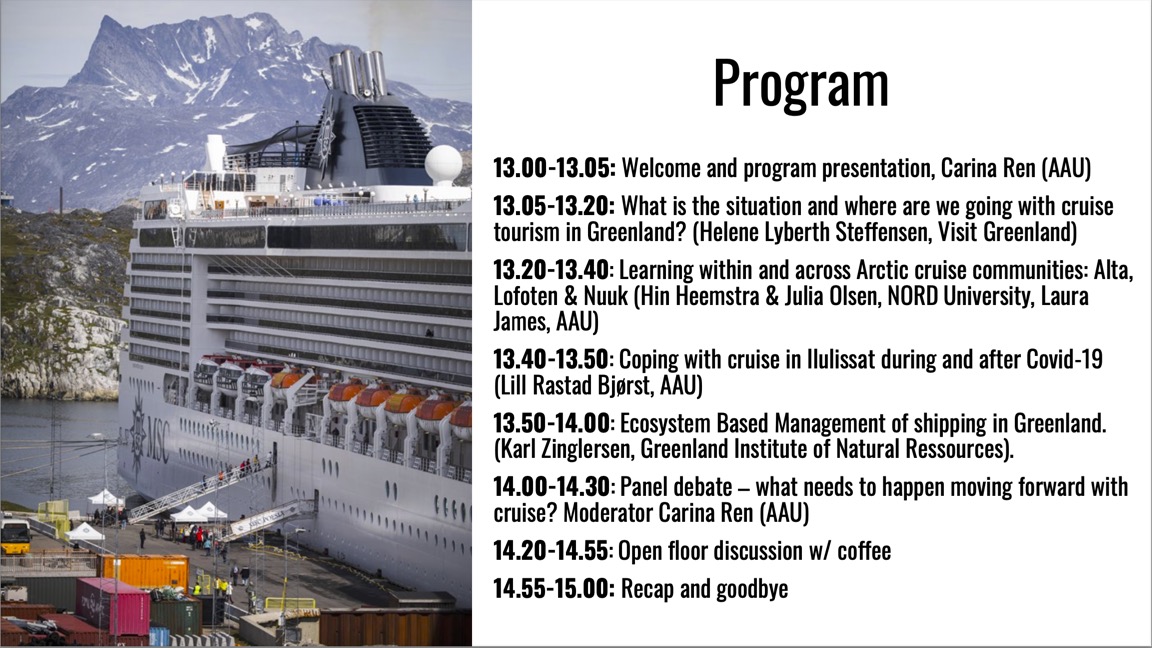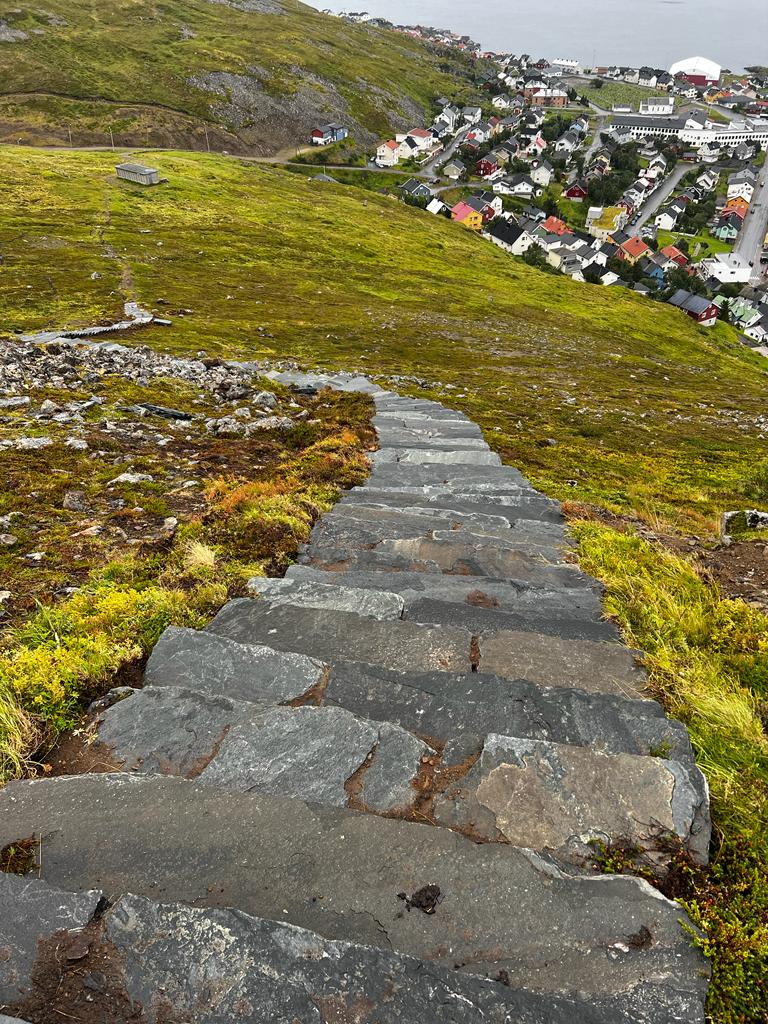Title: Cruise tourism destinations: Practices, consequences and the road to sustainability
Article written by: Hindertje Hoarau-Heemstra, Karin Wigger, Julia Olsen, Laura James
Published in: Journal of Destination Marketing & Management,
Volume 30,2023, 100820
Link to the article https://eur01.safelinks.protection.outlook.com/?url=https%3A%2F%2Fauthors.elsevier.com%2Fsd%2Farticle%2FS2212-571X(23)00059-8&data=05%7C01%7Chin.h.heemstra%40nord.no%7C45dd5380aaef444ce02708dbae10e3d9%7Cfed13d9f21df485d909a231f3c6d16f0%7C1%7C0%7C638295159780435889%7CUnknown%7CTWFpbGZsb3d8eyJWIjoiMC4wLjAwMDAiLCJQIjoiV2luMzIiLCJBTiI6Ik1haWwiLCJXVCI6Mn0%3D%7C3000%7C%7C%7C&sdata=%2FrTDedzBEjXuFH475QcqJ084kTdQ%2FpvH%2FlTX7zIXxo4%3D&reserved=0
About our writing process
This article is the result of a collaboration among researchers from Nord University, Nordland forskning, Linköping University, and Aalborg University.
Reviewing the literature on cruise tourism destinations was an essential part of the project “Sustainable Arctic Cruise Communities: From Practice to Governance.” It helped us gain an overview of and a deeper understanding of other studies related to cruise tourism destinations.
We were interested in learning about empirical research and the effects of cruise tourism on destinations worldwide. Therefore, we excluded conceptual papers and review papers from our list of articles. We found a wide range of geographical cases that focused on the local, land-based effects of cruise tourism.
Our focus was on sustainability, encompassing social, environmental, and economic aspects of cruise tourism. We observed that recent studies have shifted their perspective on sustainability from merely economic to a more holistic approach, taking into account the social and environmental aspects of hosting cruise tourism in coastal destinations.
We initiated our review process in 2020, conducting a scoping of the available literature. We had to make decisions about what to include. Given the significant impact of the UN Sustainable Development Goals (2015) on sustainability research in tourism, we began including articles from 2015 onward. This provided us with a seven-year window during which we concentrated on empirical studies published in tourism journals. We worked with a comprehensive Excel table, structuring categories and capturing relevant information from each article. To ensure alignment, we all read and analyzed the same articles and discussed them during meetings. We had to update our search twice during our writing process.
In early spring 2023, we reached a consensus regarding the shape and content of our article. We decided to submit it to the Journal of Destination Marketing and Management because our review findings and discussion aligned well with the journal’s scope. During the summer, we received the article back for major revisions and resubmitted it in August. It didn’t take long after that to receive the good news that our work was accepted for publication!
Abstract
This narrative review article contributes to the discussion on destination sustainability by focusing on cruise tourism practices. Cruise tourism is a complex industry, particularly from a destination perspective. There have been many calls for cruise tourism to become more sustainable for destinations but little consensus about what this means, or how it could be achieved. The aim of this article is to review the literature on cruise tourism destinations and to unpack the ways in which sustainability issues are framed at destination level. We have reviewed 98 peer-reviewed empirical journal articles (2015–2022). The article shows how the research literature on cruise tourism and sustainability issues has evolved over 7 years, which aspects of sustainability are considered to be most important and/or problematic and what solutions are suggested to improve the sustainability of cruise tourism. We develop three critical avenues towards sustainable cruise destinations: 1) from specific outcomes to the interconnectedness of desired practices, 2) alternatives to the growth paradigm, and 3) governing for coexistence and the commons. These critical avenues are based on the discussion of what sustainability means for cruise destinations, and translates these into pathways of future research.

